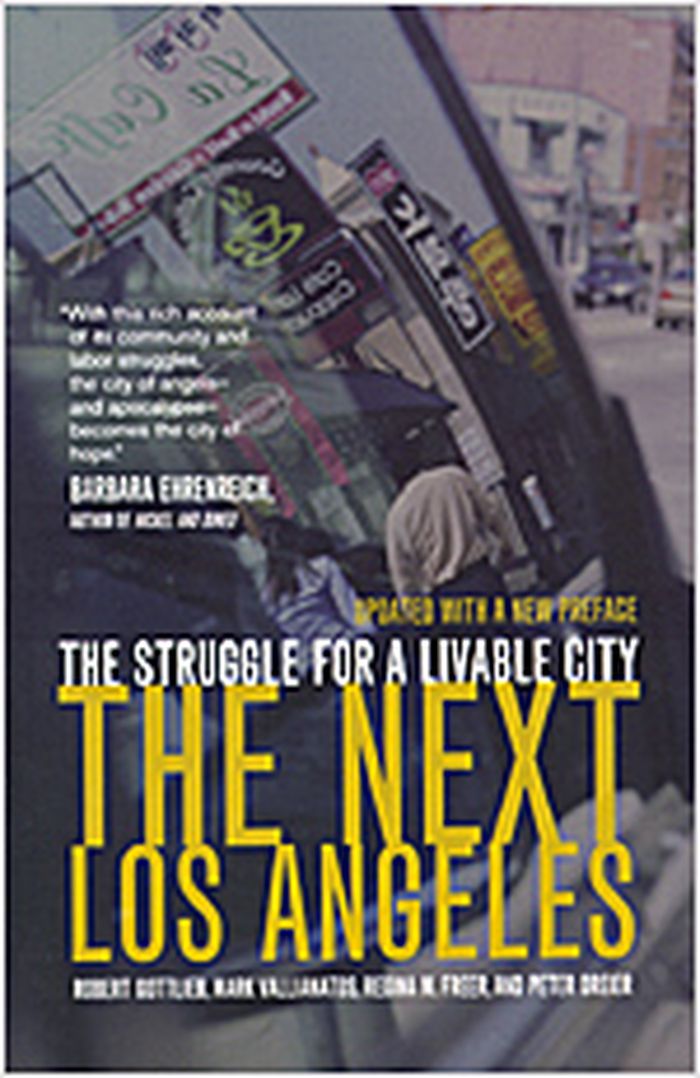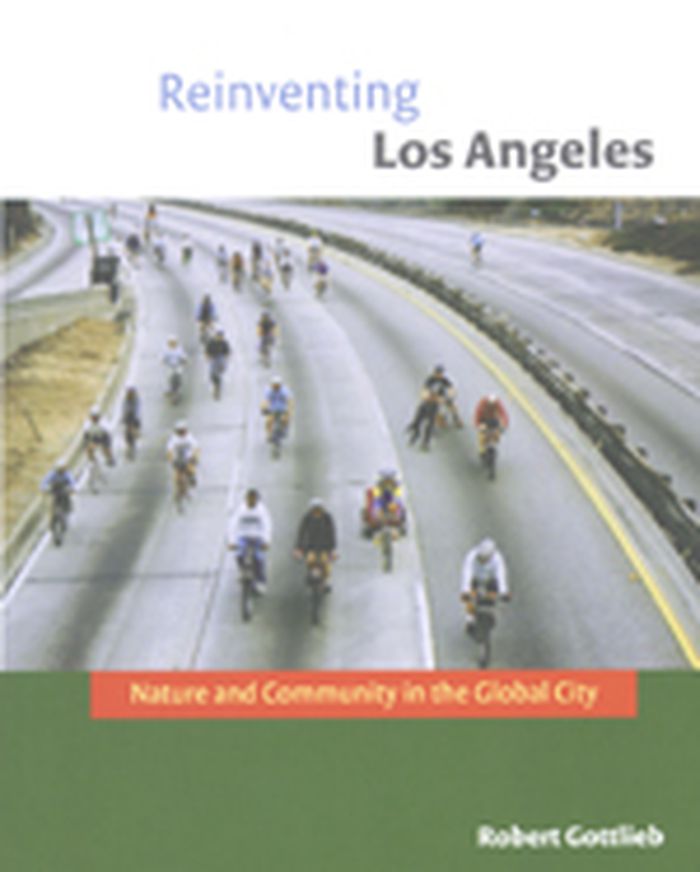$27.50
(disponible sur commande)
Résumé:
Los Angeles's history is a story of conflicting visions. Most historians, journalists, and filmmakers have focused on L.A. as a bastion of corporate greed, business boosterism, political corruption, cheap labor, exploited immigrants, and unregulated sprawl. "The next Los Angeles" tells a different story: that of the reformers and radicals who have struggled for(...)
Théorie de l’urbanisme
août 2006, Berkeley, Los Angeles, London
The next Los Angeles : the struggle for a livable city, updated with a new preface
Actions:
Prix:
$27.50
(disponible sur commande)
Résumé:
Los Angeles's history is a story of conflicting visions. Most historians, journalists, and filmmakers have focused on L.A. as a bastion of corporate greed, business boosterism, political corruption, cheap labor, exploited immigrants, and unregulated sprawl. "The next Los Angeles" tells a different story: that of the reformers and radicals who have struggled for alternative visions of social and economic justice. The authors chronicle efforts of progressive social movements that worked throughout the twentieth century to create a more livable, just, and democratic Los Angeles. These movements-what the authors call Progressive L.A.-have produced a new kind of labor movement, community-oriented environmentalism, and multi-ethnic coalition politics. This book shows how reformers have fought to transform a city characterized by huge economic disparities, concrete-encased rivers, and an endless landscape of subdivisions, freeways, and malls into a progressive model for regions around the country. "The next Los Angeles" includes a decade-by-decade historical snapshot of the city's progressive social movements and an in-depth exploration of key trends that are remaking L.A. at the beginning of the twenty-first century. It examines L.A.'s changing political landscape, including grassroots initiatives to construct a new agenda for social transformation.
Théorie de l’urbanisme
$27.95
(disponible sur commande)
Résumé:
Los Angeles--the place without a sense of place, famous for sprawl and overdevelopment and defined by its car-clogged freeways--might seem inhospitable to efforts to connect with nature and community. But in Reinventing Los Angeles, educator and activist Robert Gottlieb describes how imaginative and innovative social movements have coalesced around the issues of water(...)
Reinventing Los Angeles : Nature and community in the global city
Actions:
Prix:
$27.95
(disponible sur commande)
Résumé:
Los Angeles--the place without a sense of place, famous for sprawl and overdevelopment and defined by its car-clogged freeways--might seem inhospitable to efforts to connect with nature and community. But in Reinventing Los Angeles, educator and activist Robert Gottlieb describes how imaginative and innovative social movements have coalesced around the issues of water development, cars and freeways, and land use, to create a more livable and sustainable city. Gottlieb traces the emergence of Los Angeles as a global city in the twentieth century and describes its continuing evolution today. He examines the powerful influences of immigration and economic globalization as they intersect with changes in the politics of water, transportation, and land use, and illustrates each of these core concerns with an account of grass roots and activist responses: efforts to reenvision the concrete-bound, fenced-off Los Angeles River as a natural resource; "Arroyofest," the closing of the Pasadena Freeway for a Sunday of walking and bike riding; and immigrants’ initiatives to create urban gardens and connect with their countries of origin. Reinventing Los Angeles is a unique blend of personal narrative (Gottlieb himself participated in several of the grass roots actions described in the book) and historical and theoretical discussion. It provides a road map for a new environmentalism of everyday life, demonstrating the opportunities for renewal in a global city. Robert Gottlieb is Henry R. Luce Professor of Urban and Environmental Policy and Director of the Urban and Environmental Policy Institute at Occidental College in Los Angeles. He is the author of Environmentalism Unbound: Exploring New Pathways for Change (MIT Press), Forcing the Spring: The Transformation of the American Environmental Movement, and other books.
Théorie de l’urbanisme

